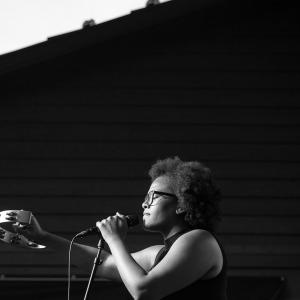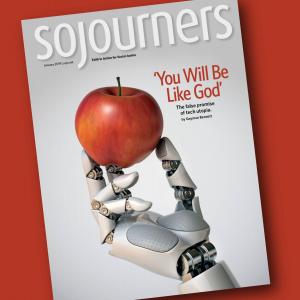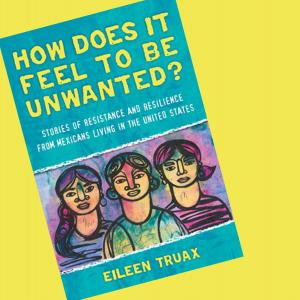Posts By This Author
From the Editors: An Unholy Alliance of Money
“SOJOURNERS IS MY favorite Catholic magazine,” readers occasionally tell us. Even though we’re an ecumenical Christian magazine with evangelical-ish roots, the compliment always makes us blush with pride. As we see it, if these pages resonate with Catholics, mainline Protestants, and evangelicals alike (as well as folks from Pentecostal, Orthodox, and other traditions), we must be doing something right.
In this interdenominational spirit, we publish “The Rise of the Catholic Right,” by Tom Roberts, executive editor of National Catholic Reporter. Through careful investigative work, Roberts offers an in-depth look at how private—and wealthy—conservative Catholic organizations are using money to exert undue influence in achieving their right-wing political and theological agendas.
New & Noteworthy: March 2019
Let the Beat Drop
Hamildrops, a series of 12 singles inspired by Hamilton, includes a range of artists (Black Thought, The Regrettes, Sara Bareilles) singing or rapping on topics such as racism, domestic abuse, and recovery efforts in Puerto Rico. The last released song features gospel legend BeBe Winans and Barack Obama. Hamildrops.com
Tackling Health Disparities
How Neighborhoods Make Us Sick: Restoring Health and Wellness to Our Communities offers an innovative, Christ-centered vision for approaching health disparities in inner cities. Drawing on professional experience in community development and public health, Veronica Squires and Breanna Lathrop outline achievable goals for promoting health equity. InterVarsity Press
Letters: March 2019
Spiritual Immaturity
Our current technology is one of the most powerful and amazing gifts our civilization has. “Big Tech” enables deaf people to communicate via sign language over visual phones. “Big Tech” enables patients to remotely control electrostimulation implants, to control chronic pain without narcotics. For me, “Big Tech” has fulfilled a decades-long dream of sharing my awe at God’s majesty in nature via photos to viewers all over the world. How we use our technology equates to the level of spiritual maturity in our civilization. The abuses Gaymon Bennett appropriately cites in his article “Silicon Valley’s Original Sin” (January 2019) are symptoms of spiritual immaturity that are burdening our civilization. For our civilization to survive, we must begin to awaken awe, wonder, and spiritual awareness in our daily lives.
Stephen Eric Levine
Garland, Texas
Too Little, Too Late
I found Danny Duncan Collum’s castigation of Paul Simon in his article “Graceless in ‘Graceland’” (January 2019) to be somewhat self-righteous. For Collum to criticize Simon for working with native musical artists such as Ladysmith Black Mambazo, contrary to a political boycott, seems to imply that Simon and Ladysmith Black Mambazo were supporters of apartheid. “Graceland” came out over 30 years ago, and Collum’s article is too little, too late.
David E. Dax
Lexington, Virginia
From the Editors: The Church’s Problem With Sensuality
“IT'S HARD TO imagine the average evangelical church embracing Mutesa’s colorful portraits of nude black joy,” writes Faith-Marie Zamblé in her profile of the young photographer whose work is rippled with laughter, face paint, and bare skin. Though the mood of Mimi Mutesa’s work is more exuberant than explicit, Zamblé is right: Blame it on the apple, Augustine, or purity culture, but many churches we know—evangelical or otherwise—blush when it comes to body parts, especially naked ones. Ever notice how crucifixes often have Jesus wearing a loincloth despite scripture’s insistence he was stripped?
We suspect Christian jitters around nudity are rooted in fear that naked bodies will arouse unholy sexual thoughts. But as Lutheran pastor Nadia Bolz-Weber points out, the church’s tendency to couple sexuality and sin has led to a sense of shame that many Christians find hard to shake. “I wonder how we could begin to honor sexual pleasure as something that can connect us more deeply to ourselves and others and God, yet still speak the truth about the ways in which our behaviors around sex can also do the opposite,” she writes in “Honor Thy Sexual Pleasure?” an excerpt from her forthcoming book, Shameless: A Sexual Reformation.
New & Noteworthy: February 2019
Freedom Ride
The expanded edition of Breach of Peace: Portraits of the 1961 Mississippi Freedom Riders revisits a pivotal civil rights campaign. Filled with mugshots and recent interviews of several riders who were arrested in Jackson, Miss., Breach of Peace honors a historic act of protest. Vanderbilt University Press
One Body, Many Parts
Together at the Table: Diversity Without Division in the United Methodist Church, by Bishop Karen P. Oliveto, the UMC’s first openly LGBTQ bishop, is timely as the denomination nears a potential split over sexuality. Oliveto outlines how her denomination can remain whole. Westminster John Knox Press
Letters: February 2019
Molech and Herod
A profound thank-you for Rose Marie Berger’s powerful column, “No More Cover-Ups,” in the December 2018 issue. It is a heroic, necessary, and epiphanic piece: I must have read it a score of times. As a cradle Catholic who never left Holy Mother Church, I wish you would send it to USCCB.org for the bishops to read. I was particularly struck by your bringing in Molech and Herod. Kudos to you for saying Catholics helped elect Herod to the presidency. I am quoting you all over the place: God bless you for such a spirited and enlightened essay.
Philip Kolin
Hattiesburg, Mississippi
From the Editors: The Dark Side of Tech
"WE LIVE AS if the connections provided by digital technologies are vital,” writes Gaymon Bennett in the cover story, “and indeed we have made them so.”
Guilty as charged. Hang around the Sojourners office long enough and you’ll hear stories about how we used to keep a list of our subscribers in a shoebox and write articles on typewriters. But those days are done: Today our office hosts a congregation of laptops, tablets, screens, cameras, and smartphones that we need to access databases, send messages, and update our website. When a network upgrade happens to knock out the Wi-Fi, we all go home because, well, how could we work?
New & Noteworthy: January 2019
In the Key of Policy
Neneh Cherry's effortless vocals and impressionistic lyrics reverberate with honesty in her fifth album, the personal and provocative Broken Politics. Complex, multilayered instrumentals featuring harp, brass, and steel drum form an unexpected backdrop for songs about refugees, women's rights, and gun violence. Small Supersound/Awal Recordings
Protest 101
How to Read a Protest: The Art of Organizing and Resistance explores the evolution of mass demonstrations in America since the 1963 March on Washington. Drawing on 30-plus years as a grassroots organizer, L.A. Kauffman sheds new light on how and why protests work. University of California Press
Letters: January 2019
Big Brother Bias
It is disappointing to read “Under Ortega, Nicaragua Explodes,” by Eric L. Olson (November 2018), because of its one-sided nature. To rely on “an expert on U.S. policy on Latin America ... [who] lives in Washington D.C.” rather than on the voices of fellow Nicaraguan Christians embroiled in the current situation is uncharacteristic of Sojourners. Is it “big brother’s” spin on events that we take at face value, or do we seek to hear from sisters and brothers from the underside? Given the history of multiple CIA-instigated coups in Latin America, doesn’t the claim by some Nicaraguans that the recent troubles are the result of a CIA-sponsored coup attempt—taking advantage of initially nonviolent protests of unpopular policy changes—deserve a fair hearing? One would hope that Sojourners would join with Nicaraguan Christians in prayer and accompaniment rather than side with U.S. policy.
Doug Wingeier
Asheville, North Carolina
New & Noteworthy: December 2018
Power of the Word
Preaching as Resistance: Voices of Hope, Justice, and Solidarity , edited by Phil Snider, is a collection of 30 sermons that confront forces of injustice and authoritarianism and proclaim gospel hope. Contributors include Wil Gafney, Jeff Chu, José F. Morales Jr., and Sojourners’ own Layton E. Williams. Chalice Press
Love and Community
In Redeeming Dementia: Spirituality, Theology, and Science, Dorothy Linthicum and Janice Hicks offer insights on a theology of the human person to empower people of faith to better embrace and advocate for those with dementia. Includes stories of innovative programs in churches and care facilities. Church Publishing
Letters: December 2018
Football Is All Wrong
Bradford William Davis’ article about football ( “A Deal with the Devil,” September-October 2018 ) has it right! Football is not only unhealthy for kids’ bodies, it’s also unhealthy for their psyches. Football exemplifies all that’s wrong: It’s “won” through hurting opponents more than they hurt you, it’s full of trash talk, and those who are proficient in it proclaim themselves deities, expecting lionization and abusing others.
Horace Brown King
Binghamton, New York
From the Editors: An Experimental Church
MAYBE YOU’VE NEVER noticed it, snuggled up there under our logo, on the cover of every issue: “Faith in action for social justice.” In magazine-speak, this slip of text is called the “tagline,” a snappy description of what the magazine is all about, and our tagline is a pretty good summary of what we try to do in Sojourners: faith, action, social justice—words that convey our call to imitate Jesus’ abiding love for those on the margins.
New & Noteworthy: November 2018
Life Stories
In How Does It Feel to Be Unwanted? Stories of Resistance and Resilience from Mexicans Living in the United States, LA-based (and Mexico City born)journalist Eileen Truax responds to rampant xenophobia with 13 profiles that highlight ways Mexican immigrants have overcome exclusion over the past 30 years. Beacon Press
Prophetic Compassion
On his new album, Nothing Like the Rain, singer-pianist-songwriter Ken Medema’s soaring voice, storytelling gift, and deep compassion deliver songs infused in turn with praise and scriptural wisdom. He lifts up stories of the broken and brokenhearted, invoking the call to both justice and mercy. Brier Patch Music
Letters: November 2018
Letters to the editors from Sojourners readers.
From the Editors: Voting Counts
HOW MANY WAYS can you say “resist”? In recent issues, we’ve urged people of faith to “challenge,” “subvert,” and “defy” the leaders and systems that run counter to Jesus’ message of abundance, inclusion, and love. We’ve shared stories of faith-fueled ways to “protest, “persist,” and “persevere.” And on more than one occasion, we’ve indulged in the old prophetic standby: “Speak truth to power.”
But the best synonyms for “resist” aren’t in a thesaurus. They’re words like “organize,” “accompany,” and, as we explore in this issue, “vote.” “Voting is simply the easiest part of the whole process for making positive change,” explains Randy Woodley. We agree: Voting should be easy, though as Carol Anderson explains in “It’s Not Just the Russians,” some officials are intentionally restricting voting access, especially for people of color. So don’t be tempted to think your vote is meaningless; it’s the very power of voting that such efforts seek to curtail. If you read nothing else in this issue, read this: Check your local voting guidelines and ensure you cast your ballot on Nov. 6.
New & Noteworthy: September/October 2018
Singing in Exile
On A Liturgy for the Perseverance of the Saints, Taiwanese-American artist SueAnn Shiah reimagines hymns “for those who have been driven out of the church because of their race, gender, or sexuality.” With warm vocals and spare arrangements, Shiah invokes hope for those currently “stranded in the wilderness.” sueannshiah.bandcamp.com
Faith and Imagination
In A Light So Lovely: The Spiritual Legacy of Madeleine L’Engle, Sarah Arthur digs deep into the personal journey of the influential and sometimes controversial A Wrinkle in Time author, revealing what L’Engle can continue to teach us. Zondervan
Letters: September/October 2018
Letters to editors from Sojourners readers.
Turning Off the Friday Night Lights
FORMER SAN FRANCISCO 49ers quarterback Colin Kaepernick was presented Amnesty International’s Ambassador of Conscience award this spring—previous winners have included Nobel Prize winners such as Nelson Mandela and Malala Yousafzai—for “his refusal to ignore or accept racial discrimination.” Kaepernick’s “take a knee” protests against police violence sparked a movement, across football and other sports, and they rest upon a rich tradition of athletes who have stood up for justice in the broader society.
Our cover feature this month looks at one of the pre-eminent justice issues for the players themselves, particularly in football: brain injuries. We talked with Dr. Bennet Omalu, the forensic pathologist who discovered pervasive brain trauma in NFL players. Omalu, whose research on chronic traumatic encephalopathy, or CTE, was chronicled in the 2015 Will Smith movie Concussion, argues in his latest book, Brain Damage in Contact Sports, that no child under 18 should play football.
Letters: August 2018
Letters to the editors from Sojourners readers
New & Noteworthy: August 2018

Image via Cora Edwards Photography/ Facebook
Time to Test
The documentary film I Am Evidence sheds light on the growing number of untested rape kits in the U.S. Featuring testimonies of survivors, prosecutors, and advocates, the documentary investigates why this backlog exists and calls attention to those fighting for justice. HBO
Beyond Redemption?
Fifteen years ago, Bryan Bliss witnessed an execution that propelled him to seminary, a stint teaching classes at correctional facilities, and, ultimately, into writing We’ll Fly Away. This young adult novel tells the story of two friends, Luke and Toby, through Luke’s letters from death row. Greenwillow Books













